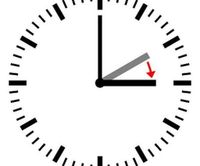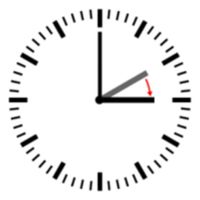NEDERLAND - As the clock strikes 2:00 AM on March 30, 2025, many will find themselves losing an hour of sleep as daylight saving time (DST) begins. This annual ritual, which officially moves the clock forward one hour, means that evenings will enjoy an extra hour of daylight. However, the practice of adjusting clocks has sparked debate over its relevance and impact on health.
The tradition of changing the clocks dates back to 1847 when the British railways introduced standard time to synchronize schedules. However, it wasn’t until World War I that daylight saving time was first implemented. Germany initiated the practice on April 30, 1916, as a means to conserve coal during the war, and soon other countries, including the Netherlands and England, followed suit.
But why do we still observe this practice today? The rationale behind DST is that by moving the clock forward, daylight hours better align with the times people are awake, theoretically reducing the need for artificial lighting in the evening. However, the actual energy savings achieved by this time change remain a topic of contention among experts. While some argue that it leads to lower energy consumption for lighting, others highlight the increased use of air conditioning during warmer months, which can offset any potential savings.
This year, daylight saving time will last from March 30 until October 26, 2025, when clocks will be set back one hour for standard time once again. The change is not without its downsides, as many people report feeling groggy or out of sorts in the days following the switch. This phenomenon is particularly concerning given research by the RIVM, which points to significant health disadvantages associated with the clock change. Disruption of the biological clock can lead to sleep disorders, concentration issues, and even an increased risk of cardiovascular diseases.
As Arnold Posthuma, a political scientist and council member for the PvdA, notes, "The daylight saving time was introduced in 1977 to save energy, but the effect is now negligible according to experts." He also points out that the European Commission raised the question in 2018 of whether member states should consider adopting a single time throughout the year. However, progress on this front has been slow, with many countries, including the Netherlands, hesitant to make changes without coordination with neighboring countries like Belgium and Germany.
In addition to the human impact, the change in time also affects wildlife. The Jagersvereniging has warned that deer, for instance, struggle to adjust to the new time. Bjorn van der Veen, a wildlife handler from the province of Drenthe, explains that it takes about two to three days for these animals to adapt. "A deer is a creature of habit, eating and ruminating at specific times. With daylight saving time, the traffic comes earlier, and the deer do not expect it," he said.
As the clock moves forward, many people find themselves grappling with the consequences of losing an hour of sleep. For some, it’s an inconvenience, while for others, it’s a cause for concern regarding health and well-being. The debate continues as society weighs the benefits of longer daylight against the potential health risks.
In the end, whether one embraces the change or dreads it, the arrival of daylight saving time is a reminder of the cyclical nature of time and the adjustments we make in our daily lives. As Posthuma aptly puts it, "So I will set my clock forward with reluctance on March 29, 2025, and hope that we one day come to a decision about this time change." For now, the clock will move forward, and with it, the promise of longer evenings filled with daylight.









